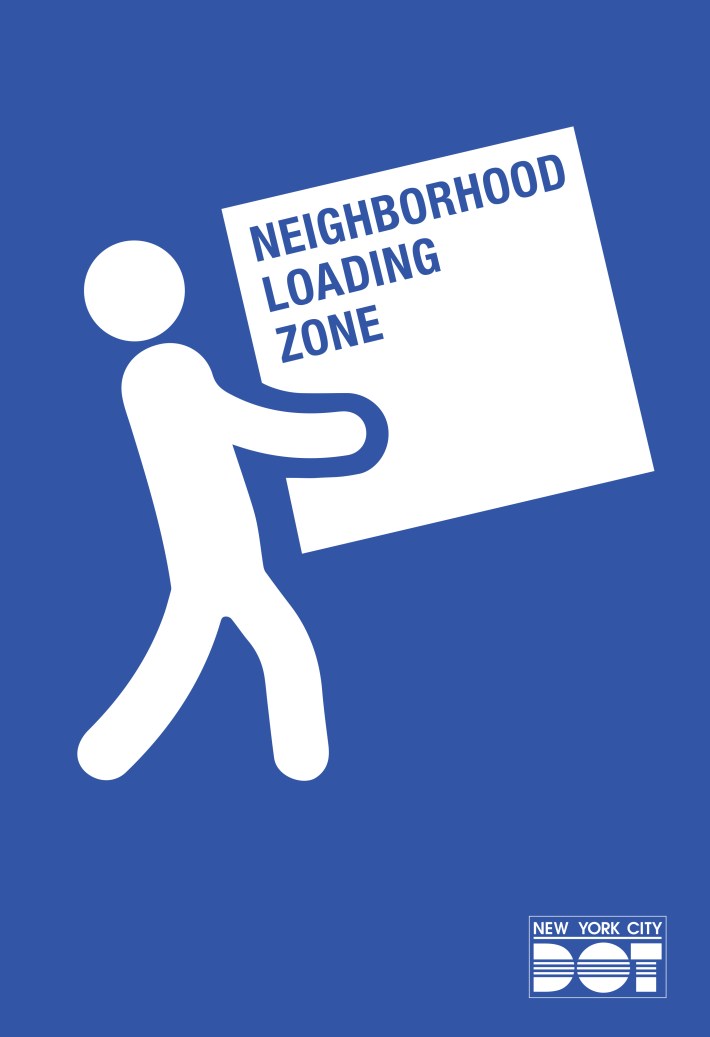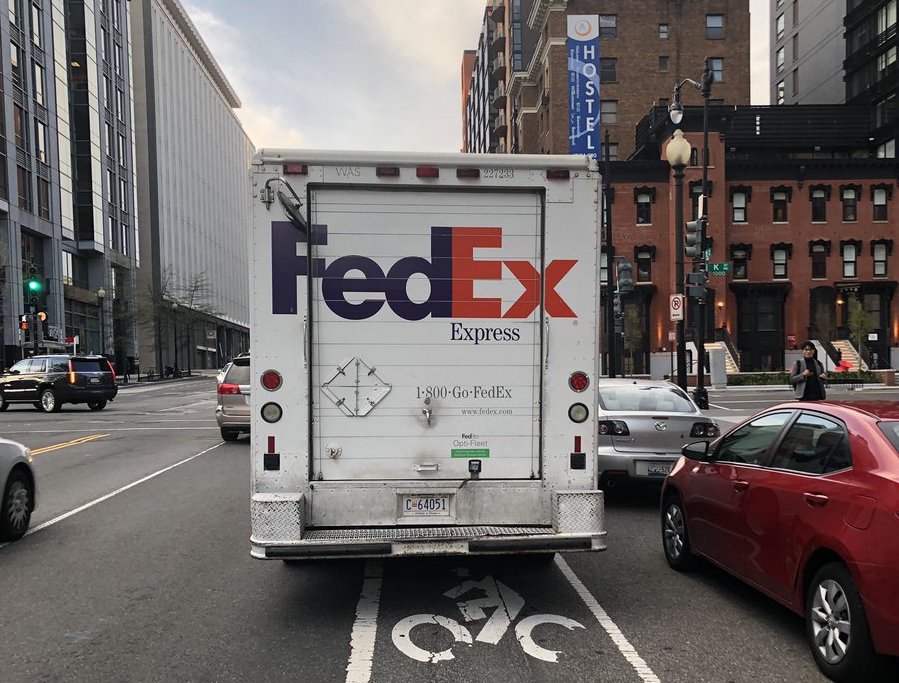Want to know why your residential roadways are so congested right now? You.
Department of Transportation Acting Commissioner Margaret Forgione told the City Council on Tuesday that the city is undergoing an historic flip in the nature of deliveries during the COVID-19 pandemic. Before the crisis, roughly 60 percent of deliveries were to commercial zones and 40 percent were in residential areas — but now, Forgione said, it's closer to 80 percent in residential areas and 20 percent in the quiet commercial zones.

Forgione did not provide exact numbers, but the New York Times reported in the glorious pre-pandemic days of 2019 that there are roughly 1.5 million packages delivered every day in the city. Using that figure, the number of daily packages in residential neighborhoods has gone from 600,000 per day to 1.2 million — and that number is probably lower than reality because many more people are ordering online during the pandemic.
DOT has tried to ameliorate the problem through a small-scale expansion of its Neighborhood Loading Zone program, which began in 2019 and immediately ran into problems from drivers in some neighborhoods who objected to having some curbside space converted to loading zones. Last year, during the pandemic, the city added just 50 such zones (reminder: there are 6,000 miles of roadways), and now the program covers 112 zones, according to the agency, which declined to provide a list of where the zones are.
Well, we know that several have just been installed in Park Slope and in Jackson Heights, judging from the outrage that they have engendered on social media, despite their clear potential in keeping roadways clear of congestion for drivers, but also maintaining clear paths for cyclists and clear sightlines for pedestrians, as this short Streetfilms video shows:
Haha! Couldn’t have planned this random shot better if I paid them!! @UPS truck using one of @NYC_DOT neighborhood loading zones in Jax Heights. Just installed like 10 of them. Need many more but it’s a start! These two employees said the “love them, need more”! @StreetsblogNYC pic.twitter.com/goqKtEOzLp
— Streetfilms (1,071+ videos!) (@Streetfilms) December 28, 2020
Still, drivers in neighborhoods with loading zones consistently refuse to see the benefit to uncongested streets because of the loss of curbside space for private vehicle storage — aka parking — between 7 a.m. and 7 p.m.
Within days of the expansion into Park Slope, for example, someone posted a comment on Nextdoor, "Proposed use of Third Street for loading zones — loss of parking spaces," as if the loss of parking was the only thing that mattered. And the Brooklyn Paper reported on Tuesday that neighbors "felt ambushed" by the new zones — which, by the way, had been approved by the neighborhood's community board months ago.
"I suspect anyone who supports such inefficient use of a scarce neighborhood resource [parking spaces] simply hates cars and wants to punish car-owning neighbors in pursuit of a misguided anti-car agenda," Brian Carmody posted on Nextdoor.
"This is ridiculous," added a similar social media commenter in the equally congested Queens neighborhood. "It’s already very difficult to find parking in Jackson Heights and now this."
To local safe streets advocate Doug Gordon, such comments are typical when entitled drivers are only capable of thinking of their own needs — and then don't even do a very good job of it at that.
"Perhaps it's bad communication from the DOT, but these people don't seem to understand that the zones allow for any unloading, which means the Amazon package you yourself ordered, or dropping off your grandmother at the curb or allowing an electrician you hired to drop off his equipment without blocking the street for everyone else," Gordon said.
"Drivers have to decide what they want: do they want ample parking or free-flowing traffic," he added. "If you don't have the loading zones, you have double-parking and not everyone will squeeze through and you'll get another honkfest on your block. If they want storage for their car, it comes at a tradeoff."
That tradeoff does not seem to be one acknowledged by the car owners.
Sara Vaswani, who lives in Park Slope, has created a petition to overturn the DOT loading zone program even though she admits that double-parked trucks, and the surging online purchases they carry, have brought congestion to the neighborhood, but she told the Brooklyn Paper that loading zones are "not the way" to fight the congestion.
"It's just going to increase the traffic of people going round and round for an hour and a half, or idling at the bottom of the street waiting for a parking spot to open up," she told reporter Ben Verde.
State Assembly Member Bobby Carroll wants to discourage online retailing (and their subsequent deliveries) by putting a $3-per-package charge on all non-essential orders. Such a proposal would presumably reduce the number of deliveries in residential neighborhoods, but not alter the roadway dynamic of double-parked trucks for the remaining deliveries.






